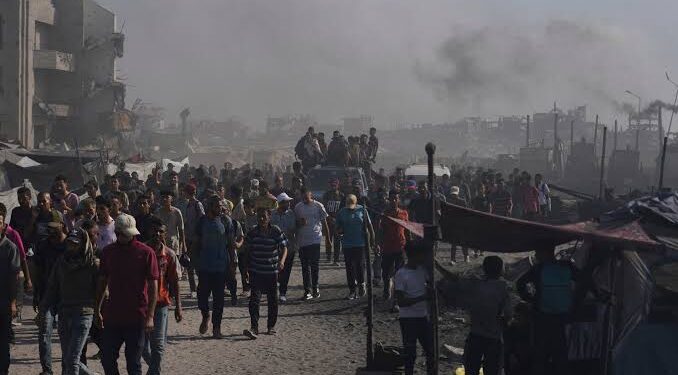At least nine more Palestinians, including two children, have died from severe malnutrition within the last 24 hours, bringing the total number of starvation-related deaths in Gaza this year to over 111, according to the Hamas-run Health Ministry. This comes as Israel approved the resumption of humanitarian airdrops by foreign countries, including Jordan and the United Arab Emirates, into Gaza.
The announcement followed mounting international pressure over the worsening humanitarian crisis in the enclave. Israel had previously halted foreign aid drops due to coordination and security concerns but has now permitted operations to resume under specific conditions. Aid organizations have expressed frustration with the reliance on airdrops, which they say are insufficient, dangerous, and symbolic rather than practical.
Médecins Sans Frontières (MSF) reported that severe malnutrition among children under five in Gaza City has tripled in just two weeks. A quarter of young children and breastfeeding women screened were found to be acutely malnourished. The number of patients seeking medical care due to hunger has quadrupled since May. The World Health Organization (WHO) also warned that malnutrition affects over 10% of the general population and more than 20% of pregnant and nursing women in Gaza. Over 30,000 children under five have been classified as acutely malnourished, and at least 21 children have already died in 2025.
WHO Director-General Tedros Adhanom Ghebreyesus described the situation as a man-made mass starvation, urging immediate and unrestricted humanitarian access. A joint letter signed by more than 115 humanitarian organizations, including Oxfam, Save the Children, and Doctors Without Borders, condemned Israel’s blockade and the militarization of aid zones. The groups accuse Israeli forces of firing at crowds gathered near aid trucks and distribution points, resulting in further deaths and injuries.
Humanitarian convoys entering Gaza remain far below required levels. While Gaza used to receive 500 to 600 trucks of aid per day, current figures hover around 28 to 70 trucks daily, leaving the majority of the population without reliable access to food, clean water, or medical care.
Past airdrop missions have also caused harm. In March 2024, five Palestinians were killed when an aid pallet detached mid-air and fell into a crowd. Another twelve drowned while trying to retrieve aid packages that landed in the sea. Aid agencies argue that airdrops are costly, inefficient, and dangerous, with far less capacity than ground deliveries. One aid truck, they note, can deliver 20–25 tons of food far more than any aerial drop.
- Latest
- Trending
ADVERTISEMENT






















